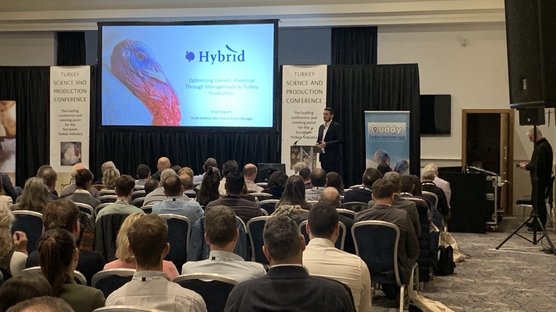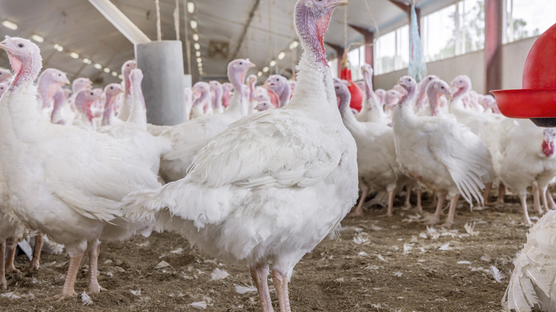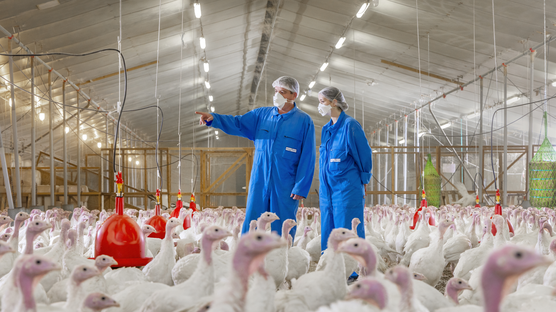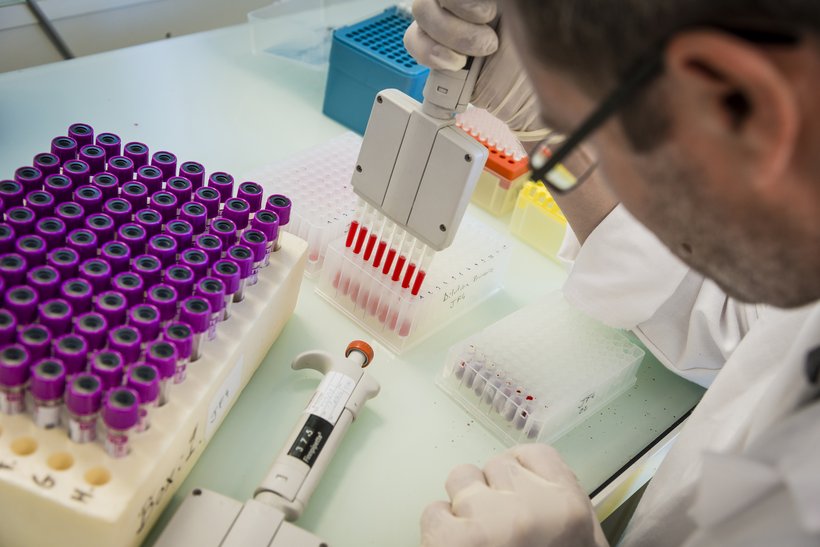
Published on Nov. 20, 2017
Genomic Selection
Hendrix Genetics’ Genomic Selection breeding program enhances accuracy for genetic selection. With this technique, we welcome our customers into a new era of genomic breeding that integrates accuracy, greater understanding of DNA composition, and ultimately a more tailored approach.
What is genomic selection?
Genomics is the sequencing and analysis of an organism’s genome (DNA). By analyzing phenotypes (traits we can see and measure, such as body weight) along with genomic data (DNA from individuals), we can make more accurate selections of desirable traits and see them improve at a faster rate. Genomics can offer more insights than conventional animal breeding technologies, especially for traits that are measured late in life or are difficult to measure. Based on their own unique pattern of DNA markers, the Genomic Breeding Values predict with high accuracy what genes are worth in the breeding program. DNA-based information will be the main driving force in the process to further improve breeding stock, tailored to clients’ requirements.
Genetic benefits for the breeding program
We believe that the use of genomics will allow us to overcome challenges that we haven’t previously been able to address as well as to enhance our traditional breeding program. Genomic Selection is far more effective when used for traits with a low heritability, traits that are sex-linked, or the ones that can only be measured at slaughter. Other potential traits are for example genetic defects, mortality, and health related traits. By more accurately estimating the genetic potential of selection candidates, the rate of genetic gain can be increased substantially.
Animal breeding can be a challenging process because of the complex and varying needs of the value chain. It requires long-term, decisive action and understanding of customers’ long term needs to appropriately select what should or shouldn’t be passed on in the genetic line. Genomic Selection allows for faster, far greater accuracy from the beginning.
SNP – the basis of genomic selection
Genome sequencing is the laboratory process that determines the complete DNA sequence of an organism’s genome. In sequencing a genome, the whole library of base pairs of an animal is mapped. A small part of these can be classified as Single Nucleotide Polymorphisms (SNP’s); a situation where the nucleic bases in a certain location of the genome are of different types in some of the individuals within a species. There are millions of SNP’s in the animal’s genome. These SNP’s are the basis of Genomic Selection. Through this technology a large number of SNP’s are selected across the genome to serve as an information source for breeding value estimation. Hendrix Genetics links the differences in these markers to the differences in performance in its reference panel animals and provides the unique opportunity to calculate genomic breeding value.
These markers provide a more accurate measurement of the genetic merit, since most traits are influenced by a large number of genes with small effects. Furthermore, this genomic information is also used to estimate relationships between animals, which makes it possible to better use family information. The marker effects are then used to predict the genetic merit of animals that do not have accurate phenotypes but are genotyped for SNP markers.
Application within each species
Hendrix Genetics is all about providing Better Breeding Today for a Brighter Life Tomorrow, and this technological advance is paving the way across multiple species. The timeline below shows when each species began to integrate genomic selection into their breeding program.
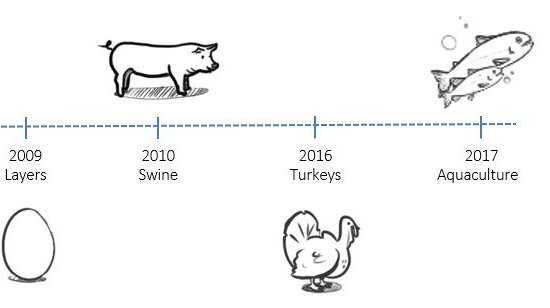
Genomic selection offers greater accuracy, speed, knowledge, awareness, and understanding of animal DNA. This new technology fits with our dedication to providing the animal protein value chain with innovative and sustainable genetic solutions.

